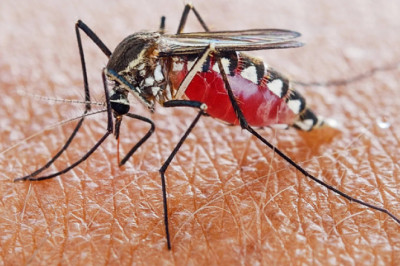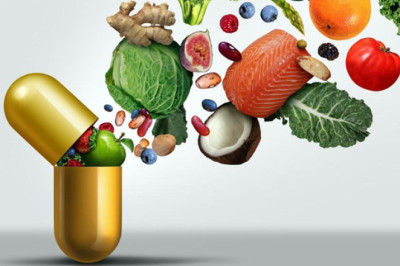views

Everyone seems to be trying to improve their gut health and nourish their gut microbiota, and with good reason. The gut microbiota, a community of bacteria and other microbes in the digestive system, influences everything from digestion to immune function and even brain health. A happy gut is characterized by a diverse microbiota, regular digestion, minimal bloating, and steady energy levels.
However, some foods marketed as “healthy” actively disrupt gut health. Hidden sugars, artificial additives, and other harmful ingredients can damage the microbiota and harm digestion. In this article, we’ll explore ten seemingly healthy foods that may be sabotaging your gut health and share smarter alternatives to keep your microbiota happy and thriving. Read on, and for what to eat instead, check out 10 Best Probiotic Supplements for Gut Health, According to a Dietitian.
1. Artificially Sweetened Diet Drinks

Diet sodas and other sugar-free drinks often contain artificial sweeteners like aspartame and sucralose. Some research has found that these sweeteners can negatively affect your gut microbiota, reducing microbial diversity and potentially leading to issues with your metabolism.
If you like fizzy drinks, consider swapping diet soda for sparkling water with a splash of fruit juice for a gut-friendly fizz without artificial sweeteners.
2. High-Sugar Kombucha

Kombucha is often praised for its probiotic content, but some brands load their drinks with sugar, which diminishes its gut-friendly benefits. Too much added sugar can feed the bad bacteria in your gut, undoing the potential benefits of this fermented tea. For reference, the Dietary Guidelines for Americans recommends limiting added sugars to less than 10% of their daily calorie intake. This works out to about 12 teaspoons of sugar per day. Where possible, choose kombucha brands with under five grams of sugar per serving, or consider brewing your own!
3. High-Sugar Yogurts

Yogurt is often promoted as a protein and probiotic-rich food that supports gut health and immunity. In fact, some research shows that yogurt modulates the gut microbiota, intestinal barrier, and immune cells in the gut. However, many flavored yogurts are packed with added sugars. Research shows that eating too much sugar can decrease the diversity of your gut microbiota and promote inflammation.
Instead of flavored yogurt, choose plain Greek yogurt and add fresh fruit for natural sweetness. If that’s not an option, consider mixing 50% flavored yogurt with 50% plain yogurt. That way, you’ll still get the benefits of yogurt but without as much sugar.
4. Gluten-Free Packaged Foods

While gluten-free diets can be helpful for people with sensitivities (and life-saving for people with celiac disease), many gluten-free products are filled with additives like refined starches and emulsifiers. Test tube studies have shown that emulsifiers in processed foods can damage the gut lining and cause inflammation. Plus, many gluten-free foods are low in fiber. Since fiber is fuel for our good gut microbes, low-fiber foods aren’t that beneficial to our gut.
Try to choose naturally gluten-free whole foods like quinoa, brown rice, and sweet potatoes. If you are looking for a gluten-free packaged food, read the ingredient list and try to avoid those with added emulsifiers (like carrageenan).
5. Fruit Juice With Added Sugar

Juices may seem like an easy way to increase your fruit and veggie intake, but they’re often packaged with added sugars that can harm gut health. Plus, even fruit juices made without added sugar are often high in fructose, a type of simple sugar found in many fruits. While some fructose isn’t an issue, our bodies struggle to absorb fructose when there’s too much of it, which can lead to unpleasant symptoms like gas, bloating, and diarrhea, especially in people with irritable bowel syndrome (IBS).
Instead of juice, blend your own smoothies at home using whole fruits, leafy greens, and unsweetened yogurt.
Final Thoughts:
Supporting your gut health doesn’t mean cutting out every food on this list – it’s about making smarter choices and aiming for balance. Choose whole, minimally processed foods whenever possible, and take the time to read labels and ingredient lists to spot additives or hidden sugars.
You don’t need to restrict these “healthy” foods completely, but you can keep your gut microbiota thriving by prioritizing a diet rich in whole, gut-friendly foods.












Comments
0 comment